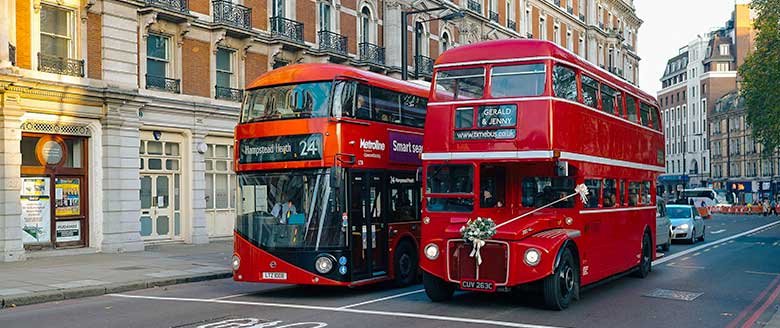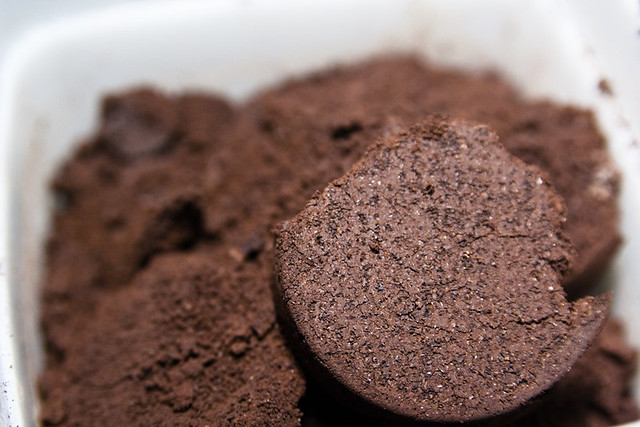Coffee powered buses could soon be transporting London commuters

The iconic red double-decker bus could soon be powered by our various coffee drinking habits, as green entrepreneur Arthur Kay wants to help turn coffee grounds into a liquid fuel.
Biobean is the start-up behind the idea, the company gathers the waste product from the various coffee chains and independent coffee shops that litter (no pun intended) the London landscape.
Plans to unveil a coffee powered bus in the capital within the coming weeks are also in place, and we thought we needed caffeine to keep us ‘powered-up’!
Our planet is facing the real threat of global climate change, pollution is also yet another reason to utilise power methods that aren’t reliant on traditional fossil fuels. Using coffee as biofuel is not exactly a new prospect, but instead of powering our homes these coffee powered buses could revolutionise our public transport networks.
Clean air is also top of Biobean’s agenda, London is after all, the UK’s most polluted city.
With over 700 different routes, and 8000 scheduled bus services within London alone, tackling a proportion of this number could seriously improve the air pollution issue.
“We are going through a period of energy divergence where we are moving from a fossil-fuel based society to one that is increasingly diversified. Biofuel will be crucial to that,” said Mr Kay.
But by accessing the potential power held within coffee grounds using a patented hexane extraction method, the common left-over waste product from producing lattes, cappuccinos, Americanos and all of our favourite speciality espresso-based drinks can help power the capital’s bus services.
The exact process is very complicated, but in basic terms, the oils within the coffee grounds are extracted via an evaporation process — hexane extraction.
Around 15 to 20% of the oil is removed and the mass leftover can be turned into biomass pellets which can also be used as fuel for wood burners.
Our favourite part of this audacious plan is the ready availability of the raw ingredients needed.
As long as we all continue to drink coffee, there will be waste coffee grounds just waiting to be utilised for projects and schemes like this.
“In the UK, people consume 500,000 tonnes of coffee each year, and if we could use all of it, we could power a city such as Manchester,” said Biobean’s Mr Kay.
What we really, really want to know though, will these coffee powered buses drive around smelling like freshly brewed coffee? Because that’s a scheme we can really get behind…
Make sure you’re handling your used coffee grounds correctly with our range of deluxe knock out drawers, designed for the sole purpose of keeping your coffee preparation areas tidy and free from ground coffee particles.

